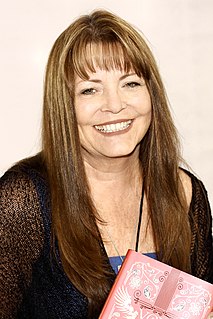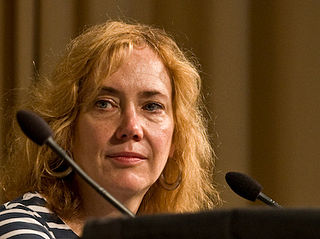Цитата Мэри Э. Пирсон
Я ненадежен. Вы можете стать суровым современным с одной книгой, научной фантастикой, магическим реализмом или высоким фэнтези с другой.
Связанные цитаты
Как видите, я несу обиду и некоторые шрамы от многолетнего антижанрового фанатизма. Моя собственная художественная литература, которая свободно перемещается между реализмом, магическим реализмом, научной фантастикой, разного рода фэнтези, исторической фантастикой, литературой для молодых взрослых, притчами и другими поджанрами, до такой степени, что большая часть ее не поддается облагораживанию, — все это было впихнуто в Научно-фантастическая мусорная корзина или с пометкой kiddilit - сублитература.
«Фильк» — это народная музыка сообщества научной фантастики и фэнтези — вы получаете пародии, вы получаете традиционную музыку с немного измененными словами, а также вы получаете только оригинальные произведения, написанные о произведениях научной фантастики и фэнтези, или с темами научной фантастики и фэнтези.
Научная фантастика — это фантазия о проблемах науки. Научная фантастика является подвидом фэнтези. Фэнтези предшествовало ему на несколько тысячелетий. С 30-х по 50-е годы были золотым веком научной фантастики, потому что в значительной степени именно в этот момент технологии и наука раскрыли свой потенциал, не раскрывая ограничений.
Если есть дирижабль, то это альтернативная история. Если есть ракетный корабль, то это научная фантастика. Если есть мечи и/или лошади, это фантастика. Книгу с мечами и лошадьми можно превратить в научную фантастику, добавив к ней ракетный корабль. Если в книге есть космический корабль, единственное, что может превратить ее обратно в фантастику, — это Святой Грааль.
«Жесткая» научная фантастика исследует альтернативные возможные варианты будущего посредством аргументированных экстраполяций во многом так же, как хорошая историческая фантастика реконструирует вероятное прошлое. Даже далекое воображение может стать серьезной проверкой человеческих ценностей в новой среде. Черпая наиболее убедительные идеи из противоречия между постоянством и изменением, научная фантастика сочетает в себе новизну с присущим ей видом реализма.
Научная фантастика — странная категория, потому что это единственная область фантастики, о которой я могу думать, где история не имеет первостепенного значения. Научная фантастика, как правило, больше о науке, изобретении фантастического мира или политической аллегории. Когда я ушел из научной фантастики, я сказал: «Их больше интересуют планеты, а меня интересуют люди».




































